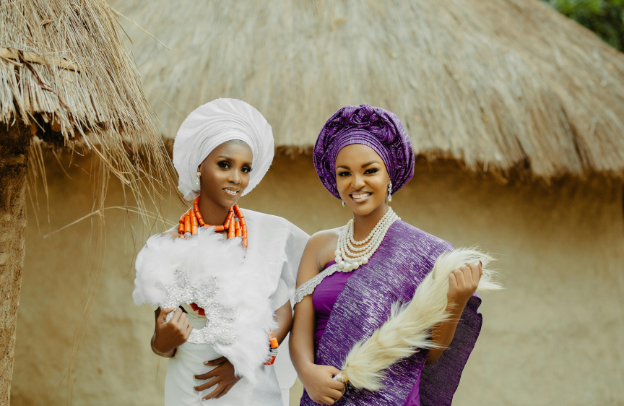From Roots to Relevance: How Africa’s Cultural Hubs Reignite the Diaspora’s Global Vision

What happens when a journey across the ocean becomes a journey within? For many in the African diaspora, the decision to return to Africa isn’t just about visiting a continent—it’s about reclaiming a story. From the bustling rhythms of Lagos to the ancestral echoes of Kumasi, these cultural epicenters offer more than scenery; they offer soul. They are not just places on a map but milestones in identity. And in every drumbeat, every market chant, every ancestral whisper, diasporans discover not a distant past but a living, breathing narrative that reshapes how they see the world and themselves.
Learn How to Leverage Your Story through our Story To Asset Framework.
Insight: Reconnection Beyond the Surface
For centuries, Africa existed in the diaspora’s mind as a mythical motherland—both longed for and misunderstood. But today, modern cultural tourism transforms nostalgia into knowledge. Through immersive experiences like FESTAC in Lagos or Panafest in Ghana, and intimate stays with local families, diasporans are no longer passive observers. They become active participants, learning languages, customs, and histories not from books, but from lived experiences.
Dr. Nemata Blyden reminds us in African Americans and Africa: A New History that seeing Africa as a living, contemporary space helps diasporans move from inherited trauma toward empowered agency. It is here, on these vibrant streets and sacred grounds, that they begin to shift from fragmented memory to full-circle connection.
Lesson: Cultural Hubs as Living Archives
Cities like Accra, Addis Ababa, and Bamako are not just political capitals; they are cultural keystones. Their museums and galleries narrate Africa’s triumphs, struggles, and innovations with a voice unfiltered by colonial distortion. Institutions like Dakar’s Museum of Black Civilizations don’t just house artifacts; they house stories, spirit, and sovereignty.
See also Enolia Foti Talks About Her Soul Searching and Entrepreneurial Journey
When diasporans stand before artifacts once stolen and now returned, they aren’t just viewing history; they’re reclaiming it. This reconnection isn’t about relics; it’s about restoration. A 2022 UNESCO report echoes this, highlighting how heritage tourism, when ethical and locally grounded, builds bridges of understanding and economic resilience.
Action: Living Ubuntu, Building Futures
Revisiting Africa often means relearning Africa and rediscovering ourselves. Values like Ubuntu (I am because we are), Harambee (pulling together), and Palaver (dialogue for consensus) are more than philosophical ideas; they are blueprints for modern collaboration.
Initiatives such as Ghana’s “Beyond the Return” and Senegal’s “Door of Return” aren’t simply tourism campaigns. They are calls to co-create: to invest in communities, to build sustainable ventures, and to weave African philosophies into the fabric of global development.
Collaborations in art, fashion, education, and tech between diasporans and continental Africans reflect a new paradigm built on mentorship, mutual growth, and cultural stewardship. The African Union’s Diaspora Division and organizations like the African Diaspora Network are leading this movement, proving that when we lead with legacy, commerce follows.
Empowerment: Cultural Literacy as Liberation
Diasporans often describe cultural tourism as a form of awakening. In Ghanaian storytelling circles or Nigerian textile workshops, they don’t just hear history they feel it. This shift from Eurocentric narratives to Afrocentric frameworks isn’t just academic; it’s personal.
You might also like Building Cultural Understanding: How African Diasporans Can Participate in Africa’s Rich Traditions
As Dr. Cheryl Finley notes, cultural tourism becomes an “educational laboratory,” offering a curriculum written in rituals, art, and resistance. It’s one thing to study the Ashanti Empire; it’s another to walk its sacred grounds and see its legacy in modern Accra architecture or protest murals.
These experiences don’t just enrich individual visitors; they empower communities through global storytelling. The souvenirs brought home aren’t objects, but outlooks.
Soft Power: Cultural Hubs as Global Beacons
African nations are recognizing the strategic power of cultural heritage. Rwanda, Morocco, and others are investing in creative industries not just as economic engines but as diplomatic tools. The African Union’s declaration of 2021 as the Year of Arts, Culture, and Heritage marked a pivotal moment: culture is now central to Africa’s development and its connection to the diaspora.
Diasporans, in turn, serve as informal ambassadors. Their stories reshape perceptions, challenging outdated narratives and elevating Africa’s global image. In this exchange, they also encounter fellow diasporans—from Brazil to Colombia—deepening a pan-African identity that is beautifully complex and richly interconnected.
Reflection: A Future Co-Created
The real power of cultural tourism lies not just in return but in renewal. Whether it’s through platforms like the Diaspora African Forum in Accra or the African Cultural Alliance of North America, what emerges is more than memory. It’s movement.
With structures like AfCFTA integrating tourism and creative products into Africa’s economic vision, diasporans are positioned not just as investors but as partners. When global experience meets local expertise, the result is a future built on shared knowledge and mutual respect.
As poet Lebo Mashile reminds us, “Home is not always a place. Sometimes it’s people. Sometimes it’s a feeling.” Visiting Africa’s cultural hubs gives diasporans that feeling—a sense of rootedness and relevance that transcends time and borders.
Conclusion
In a world often divided by walls and wounds, cultural tourism offers a bridge from past to present, from loss to legacy. Africa’s cultural hubs are not ends; they are beginnings. They invite the diaspora not just to witness history but to shape its next chapter.
So let us walk where our ancestors once walked. Let us speak the languages they preserved. Let us build futures they dream of. Because Africa isn’t behind us. It lives within us. And it calls us not just to remember, but to rise.
Learn How to Leverage Your Story through our Story To Asset Framework.





